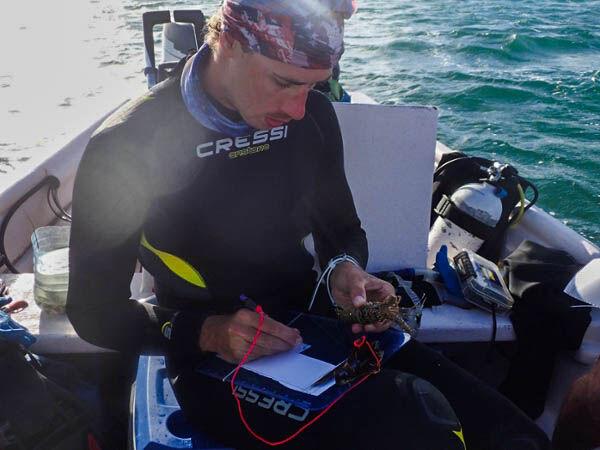Recently, a team of about 150 researchers have published a study about their discovery of a rapid decline of many shark species.
Texas A&M Galveston Biology Professor Phillip Matich and more than 100 other scientists spent many years researching, studying and analyzing shark populations in several countries. According to their research, factors such as socio-economic status of the surrounding country, management, enforcement and policy, have forced sharks out of previously populous areas. The study was published on July 22, but the process began several years ago when other researchers began looking into several shark species’ population differences.
Over several months, the scientists were able to gather data by lowering a camera into the water for a period of time to watch for sharks. The data was gathered, collected and analyzed before any further conclusions were made.
“Among the trips that I went on, there were multiple tripods with the bait and the camera,” Matich said “We deployed each at different locations across a coral reef, let them soak for 90 minutes, then pulled them up to change out the bait and change out the camera. After that, we would drop them in a new place.”
The original goal of the study was to find out which areas of the world had more sharks, where different shark species were located and to hypothesize why.
“Looking at geographical differences in sharks, like different islands in the Caribbean, or the Atlantic versus the Pacific Ocean, provides a baseline to understand if there are particular countries or regions that have healthier shark populations and the human actions that promote sharks,” Matich said.
In their findings, Matich and the other researchers discovered that countries with a higher socio-economic status were able to better manage and enforce laws regarding shark populations.
“Countries with lower socio-economic status tended to have fewer sharks, and that can be due to lack of economic opportunities,” Matich said. “People may fish to feed their family and pay their bills. Management and enforcement may be limited, and this can be coupled with habitat degradation and pollution.”
Fishing laws and policies also contribute to the health of a shark population. Countries such as Costa Rica, Spain and South Africa have more policies outlawing shark finning, according to the Animal Welfare Institute.
“Some of the major factors that were considered in assessing geographic differences in shark abundance were human actions like management,” Matich said. “This included whether sharks are protected in a particular area and the types of fishing regulations that are in place. Areas where gill nets and long lines were permitted tended to have fewer sharks than the areas in which they were banned.”
According to a 2019 article published on LiveScience, Trinity College Dublin doctoral candidate Jenny Bortoluzzi said current statistics show how important sharks are to our ecosystems.
“Fish-hunting sharks weed out weak and sick individuals, ensuring that the fish population remains healthy and at a size that the habitat’s resources can support,” Bortoluzzi said. “These fearsome predators can even help to preserve their ecosystems through their presence alone.”
In addition to regulating fish populations, sharks help provide oxygen to the planet by consuming fish that eat oxygen-generating plankton, according to Wonderopolis.
When different organisms are affected, the coral reefs will die, which harms the oceans and the world, Matich said. Although much of the world’s population doesn’t live near the ocean, everyone’s actions have a large chain reaction and will affect the entire world. Reducing items such as straws, plastic bags, and other single-use objects as well as education will continue to help the ocean.
“The biggest thing anyone can do is be an advocate for the ocean,” Matich said. “That is having a general understanding that the health of the ocean means the health of the planet, and that the health of the ocean is driven by the health of the organisms that are in it.”
Study shows decline in world shark population
August 17, 2020

Photo by via TAMU Galvestion Research Operations
Phillip Matich, a Biology Professor at Texas A&M Galveston, and other researchers spent years observing and analyzing shark populations in several countries.
0
Donate to The Battalion
Your donation will support the student journalists of Texas A&M University - College Station. Your contribution will allow us to purchase equipment and cover our annual website hosting costs.
More to Discover








